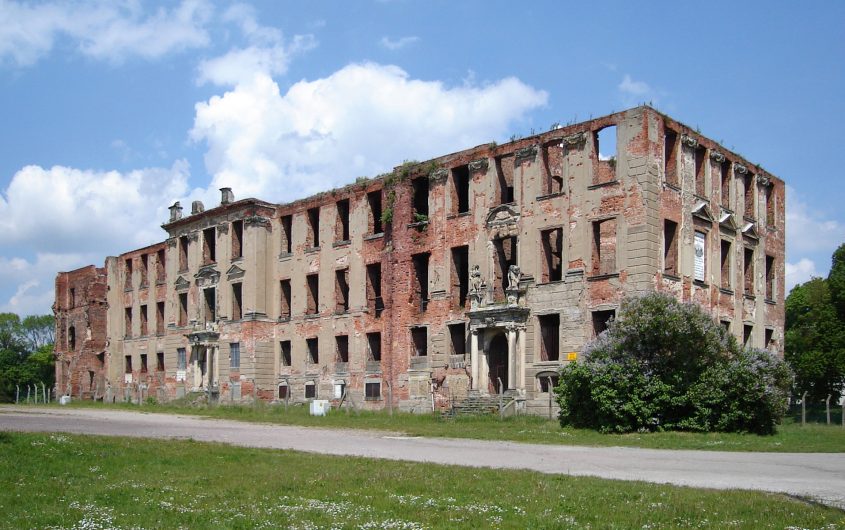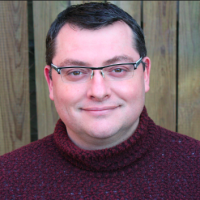
Catherine the Great and the Limits of German Memory Culture

Eric Langenbacher
Senior Fellow; Director, Society, Culture & Politics Program
Dr. Eric Langenbacher is a Senior Fellow and Director of the Society, Culture & Politics Program at AICGS.
Dr. Langenbacher studied in Canada before completing his PhD in Georgetown University’s Government Department in 2002. His research interests include collective memory, political culture, and electoral politics in Germany and Europe. Recent publications include the edited volumes Twilight of the Merkel Era: Power and Politics in Germany after the 2017 Bundestag Election (2019), The Merkel Republic: The 2013 Bundestag Election and its Consequences (2015), Dynamics of Memory and Identity in Contemporary Europe (co-edited with Ruth Wittlinger and Bill Niven, 2013), Power and the Past: Collective Memory and International Relations (co-edited with Yossi Shain, 2010), and From the Bonn to the Berlin Republic: Germany at the Twentieth Anniversary of Unification (co-edited with Jeffrey J. Anderson, 2010). With David Conradt, he is also the author of The German Polity, 10th and 11th edition (2013, 2017).
Dr. Langenbacher remains affiliated with Georgetown University as Teaching Professor and Director of the Honors Program in the Department of Government. He has also taught at George Washington University, Washington College, The University of Navarre, and the Universidad Nacional de General San Martin in Buenos Aires, Argentina, and has given talks across the world. He was selected Faculty Member of the Year by the School of Foreign Service in 2009 and was awarded a Fulbright grant in 1999-2000 and the Hopper Memorial Fellowship at Georgetown in 2000-2001. Since 2005, he has also been Managing Editor of German Politics and Society, which is housed in Georgetown’s BMW Center for German and European Studies. Dr. Langenbacher has also planned and run dozens of short programs for groups from abroad, as well as for the U.S. Departments of State and Defense on a variety of topics pertaining to American and comparative politics, business, culture, and public policy.
__
Catherine the Great. Yes, the eighteenth-century Russian Czarina, who was originally German, is back in the news. As reported by Katrin Bennhold in the New York Times, the former chair of the Social Democratic Party of Germany Matthias Platzeck thought she is somehow relevant to the current discussion about Russian saber-rattling towards Ukraine. He added that she “incidentally made Crimea part of Russia.” Now I love me some Catherine the Great as much as anyone—like former Chancellor Angela Merkel, who hung a portrait of the monarch near her desk. I have watched all the television series and even once visited the ruined castle in Zerbst where she grew up. But, really, in 2022, Catherine the Great?
This minor detail is indicative of a much larger issue in German culture and politics today—one that is increasingly constraining policy-making and leading to unintended outcomes. Simply put, Germany’s much-vaunted memory culture is no longer producing the progressive effects that were always a key justification behind it. Instead, this now rigid orthodoxy, what A. Dirk Moses has provocatively deemed the “German catechism,” is leading to inaction in the face of bad actors and is providing moralistic cover for anti-democratic, autocratic threats.
Despite substantial resistance, the emergence of what I call Holocaust-centered memory was one of the greatest moral achievements of the Federal Republic of Germany especially in the years before reunification. This entails recognition that Germans perpetrated the worst crimes against humanity in world history, epitomized by but not limited to the genocidal murder of six million European Jews in the Holocaust. Moreover, this was a unique crime, which ought never to be compared to anything else, motivated by a uniquely German eliminationist anti-Semitism.
Germany’s much-vaunted memory culture is no longer producing the progressive effects that were always a key justification behind it. Instead, this now rigid orthodoxy is leading to inaction in the face of bad actors and is providing moralistic cover for anti-democratic, autocratic threats.
In the decades after 1990, this memory regime has become increasingly institutionalized and culturally hegemonic. Many efforts to make financial and moral amends with the victims and their descendants have occurred even if such efforts will always fall short. German cities are marked by numerous museums and memorials—large and small—devoted to the remembrance of these genocidal crimes committed by Germans during the Nazi regime. Schools, newspapers, and television channels devote considerable attention to this history, ensuring that current and future generations will maintain the memory. Institutionally, the entire political system is based on interlocking checks and balances, the pooling of sovereignty at the supranational, European level, or the “self-binding” of the country, all intended to preclude a repetition of the past.
What has always mattered most, however, are the lessons and values attached to and flowing from this memory regime. These include respect for human dignity and rights, as well as the importance of multilateralism and liberal democracy. Above all, the lesson has been “never again” (nie wieder). The original formulation was “never again war,” which has been deeply and comprehensively internalized making Germans one of the most pacifistic peoples in the world. Diplomacy and soft power were the only legitimate means to pursue foreign policy—especially because hard power was wielded on Germany’s behalf by others, particularly the United States. In the 1990s, bad actors in the Balkans forced a needed debate about the limits of this lesson in the context of the post-Cold War era and the “normalization” of the country. Out of this emerged a new lesson, “never again Auschwitz,” indicating that sometimes a harder, even military response is necessary to prevent bloodshed and genocide. Besides intervention in the Balkans, this new lesson also grounded the nearly twenty-year deployment of German troops in Afghanistan and elsewhere.
Today, however, this newer lesson appears to be forgotten as Vladimir Putin foments the worst European security crisis in decades. The German government refuses to bolster Ukrainian defenses despite increasingly desperate pleas from that country’s government, NATO and EU allies, and the Biden administration. Leading politicians will not countenance shutting down the Nord Stream 2 gas pipeline or supporting harsh sanctions like suspending Russian use of the SWIFT system because that might cost some German companies money. The head of the German navy opined that Putin deserves “respect” and predicted that Ukraine will not get Crimea back. Even though he was forced to resign, one suspects that his mistake was to utter the true opinion of the German political class.
What has happened to German memory culture when “never again war” has come to mean “always appease Russia,” throwing a sympathetic country striving for more freedom and democracy under the proverbial bus—or better, tank?
When criticized about this policy stance, politicians like Foreign Minister Annalena Baerbock typically mention “history,” specifically the genocidal war that Germany unleashed on the Soviet Union in 1941—although they usually neglect to mention the many Ukrainian victims of that war. They also preachily mention that others, especially Americans, neither understand the complex historical relationship that Germany has with Russia nor the unwavering dictates of German memory culture.
Nevertheless, the current orthodoxy is resulting in exactly the opposite of what the memory regime was supposed to produce. What has happened to German memory culture when “never again war” has come to mean “always appease Russia,” throwing a sympathetic country striving for more freedom and democracy under the proverbial bus—or better, tank? How decadent is it when memory is now being used as cover to protect profits or the energy supply?
Well, at least we have Catherine the Great. That ever Machiavellian, amoral enlightened despot (a German princess after all!) would not have had a problem with this. But the leaders of contemporary Germany surely should.







